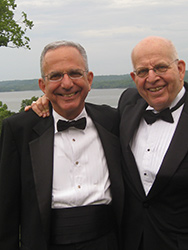A (no pressure!) intro to online writing groups
Aren’t you sick of everyone telling you how you should be working right now? We are in a pandemic and research productivity isn’t exactly top-of-mind for everyone right now. And I’m not here to argue that it should be. If you are working through your relationship with research productivity right now, I would highly recommend this conversation with rhetorician (and my conference friend) Naomi Greyser. Listening to Naomi reflect on the uneven distribution of writers’ block and flow in the post-Fordist academy really helped me contextualize conversations about productivity during a pandemic in the longer history of efficiency culture as a discourse differentiated along lines of race, class, gender, and sexuality.
I might be living in a dystopic version of Virginia Woolf’s fantasy, but I’m also realizing how much I relied on the structured dialogue of the colloq series and chance encounters at photocopiers and coffeemakers to keep me going. So, over the last few weeks I’ve been experimenting with different online venues to re-create those connections. I am trying to intentionally build care into my writing and research habits right now—care for the work, care for my colleagues, and care for myself. If you, like myself, are managing your anxieties about an uncertain academic future by rethinking your relationship to writing and research, or if, like Sara Ahmed, you are finding in your work a way of “holding on,” hi! I have some thoughts about using online meetups to cultivate sustainable writing habits during *gestures broadly at everything*.
Write On Digital Site
I love a write on site to create accountability for writing time. I imagine you’re familiar with the general setup: a small group of writers meet at a particular ‘site’ to write away from the distractions of their homes and offices. In the past I’ve thought that the write on site’s greatest strength was its ability to take up space in my calendar the way a meeting or class would. It creates the accountability structure that most academics lack for their writing practice. Right now, I find it’s one of the best ways of making sure I get out of bed before 3pm.
My write on site practice has gone through two major changes since we went online. First, distance doesn’t really matter anymore, so everyone is a potential writing buddy now. Instead of waiting for the annual conference to see graduate school friends, I can spend hours with them every week. Second, partly because I don’t want to lose another Zoom link, and partly because of time zones, I have switched from meeting a small group of friends at a coffee shop to FaceTiming one writing buddy at a time. This has also made our check-ins and check-outs deeper. We meet for two hours at a time and set aside our first 20-30 minutes together to check in more generally before we start discussing specific writing goals. I’m not sure how tenable this two-hour block will be as the contours of academic labor continue to change with the pandemic, but for now, the two hours give us the accountability of a write on site plus structure for an amorphous workday, as well as time for a brief but real conversation with a friend. Taking the time to be honest with each other about how we are really doing makes it easier to accept how we are really doing.
I do find it useful to keep my write-on-site accountability/support buddies separate from the people I turn to for writing feedback. In the past, when I’ve had more overlap between the two groups, I’ve found myself tempted to ‘share a quick thought’ or ‘pick their brain really quick’ as I write, both derailing my own writing goals for the day and taking them away from theirs. But I have definitely benefitted from having a…
…Writing Group But Make It Online
I’m not the first person to tell you how useful a writing group is for anyone trying to make a career in academia. Everyone I trust in academia has told me to set up a writing group. And I’ve tried several times. But I didn’t really find one that took until I got to William & Mary. I love my writing group here. But finding this great group has helped me see why my previous groups weren’t working out, so here are two reasons my group is amazing, and two elements I’d suggest you get in place if you’re trying to make an amazing writing group as well.
First, we have clear, shared expectations.
In the past, I’ve tried to create writing groups out of friendship groups. It sounds like an okay idea, but it doesn’t always work out because people want different things from writing groups. Some need a writing partner, some a deadline, some a sounding board, and others feedback on our written work. Articulating what you need from a(n online) writing group (and committing to providing the same for your colleagues!) is (in retrospect a blatantly obvious) prerequisite for a sustainable writing groups. My current writing group works really well because we all want feedback on drafts-in-progress, and we are all committed to carefully reading each others’ work and providing that feedback. Without the reciprocity created by clear and shared expectations, the writing group becomes a source of stress and guilt, rather than a source of support.
Second, we are interdisciplinary.
As part of our clear, shared expectations—especially during this emergency semester online—we are supporting each other get manuscripts out the door. This means that most of the drafts we look at are closer to publication than brainstorming, so we aren’t really looking for advice that will send us back to the drawing board, but specific suggestions that will ready our drafts to be entrusted to an editor. We are far enough removed from each others’ work that we can focus on the bones of an essay/chapter/prospectus (is the argument clear? is the structure effective? is the author taking credit for their original contributions and methodological innovations?) and give actionable editing advice.
Of course, if you are looking for a sounding board for an early idea, and trying to figure out how to see it through given the constraints of the pandemic, you might want to look into putting together a…
…Virtual Brown Bag
I’ve appropriated this phrase and idea from Karin Wulf, who set up a weekly meeting of the current OI postdocs and some nearby colleagues to serve as a low stakes, high support, “relaxed chat” where we share ideas, get feedback on short written pieces (conference paper drafts, pieces of journal articles), or discuss recent publication that we’ve been meaning to read but been putting off for reasons. We work through ideas together with the kind of rigor you might expect in a grad seminar but without all the performance anxiety. As with the digital write-on-sites, I’m not sure how tenable this will be when our schedules evolve to whatever the next normal is, but it’s a delight to share time and intellectual curiosity with peers in a low stakes environment.
These three virtual meetups have given me reason to write and think on the days the muses haven’t visited I am re-centering my working habits around some of my core values (care, community, compassion). Having clear and shared expectations, reciprocity, and regularity have allowed me to take some of the anxiety out of research and writing. I hope reading them has helped you think about what you need to keep going, whom you can get that support for, and whom you can provide that support for.
Vineeta Singh is the 2018-2020 Omohundro Institute–W&M Lemon Project fellow. Her work as a fellow has had a dual focus: increasing the Lemon Project’s visibility and impact on campus, and strengthening ties with community members on and off campus. The former has entailed supporting programming for students, faculty, and staff on campus, including a new ‘journal club’ where students, faculty, and staff can participate in informal discussions of new publications in Black Studies, Gender Studies, and Digital Humanities journals. The latter has included extending the project’s reach off campus to partner with local community organizations like The WJCC [Williamsburg/James City County] Village Initiative for Equity in Public Education. Her work is informed by her research on modern U.S. higher education as a racial frontier and her Ph.D. training in Ethnic Studies at the University of California, San Diego.


